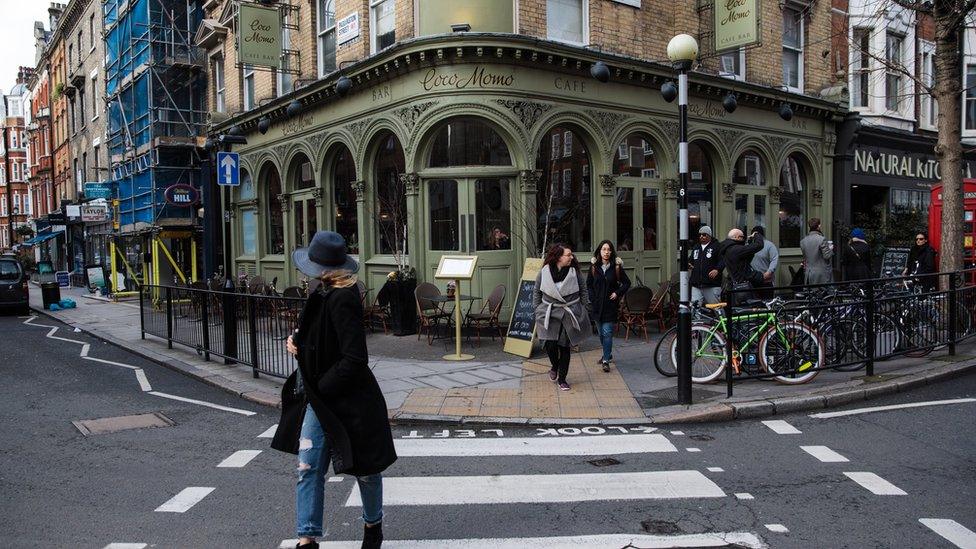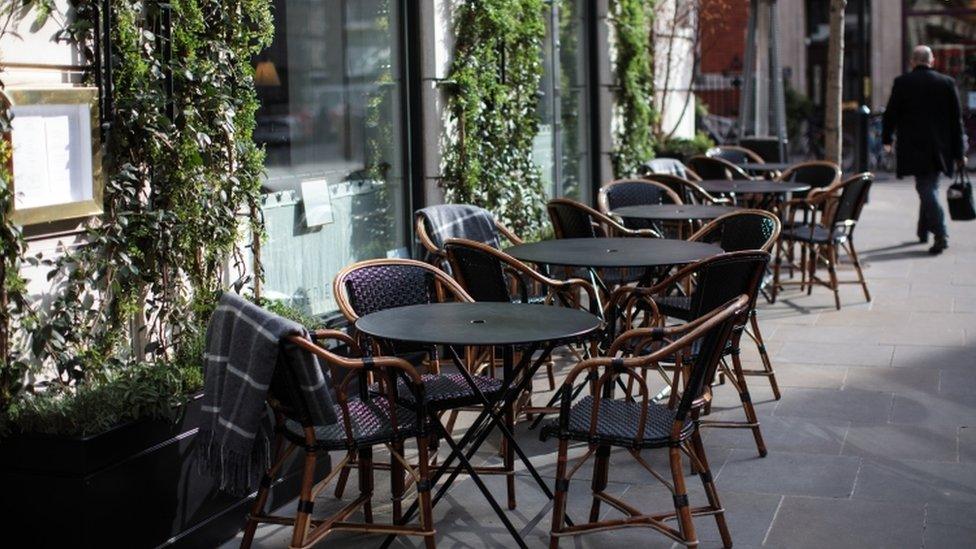Philip Hammond 'listening' to business rates concerns
- Published

Chancellor Philip Hammond has told Conservative MPs he is "listening" to their concerns about an imminent re-evaluation of business rates.
Ministers are under pressure with MPs warning the changes will lead to "eye-watering" bill rises for some firms.
Questions have also been raised over calculations used by the government to defend the reforms.
But the government said this was "scaremongering" and said it was making business rates "fairer".
Rates are being updated for the first time in seven years, to bring them into line with property values.
Business groups and some Tory MPs have warned of high street store closures and are urging Mr Hammond to use next month's Budget to mitigate the impact.
At an 80-minute meeting of the Tory backbench 1922 Committee in Westminster on Monday evening, a series of MPs confronted the chancellor with examples of businesses in their constituencies facing steep tax rises.
The changes come into force on 1 April as a result of a revaluation of premises carried out by the government, which says three quarters of businesses' rates will either go down or stay the same.
In an email to MPs, ministers Sajid Javid and David Gauke included a list of constituency-by-constituency figures showing how the average business in each seat would be affected.
It revealed many of the areas facing rate rises are in Tory heartlands, with the Home Counties facing some of the biggest increases.
Speaking on BBC Radio 4's Today programme, Conservative Andrew Bridgen disputed the ministers' forecast of a reduction across his North West Leicestershire constituency.
He said some businesses were facing "eye-watering" rises, with one firm's monthly rates going up from £50 to £700, and said action was needed in the Budget to avoid the risk of "damaging the economy".
Former Conservative Party chairman Grant Shapps also questioned the government's figures, telling the BBC's Victoria Derbyshire they were "being presented as if it's somehow a cut to business", while ex-business minister Anna Soubry tweeted: "Business rates are unfair and should either be radically reformed or scrapped."

Business rates explained

Business rates are a tax on non-residential property such as pubs, restaurants, warehouses, factories, shops and offices
The amount businesses pay is based on how much annual rent could be charged on the premises, which is known as the rateable value
This is combined with the "multiplier" - a figure set by the government each year - to determine the final bill
The Westminster government's revaluation, the first since 2010, applies to premises in England
Revaluations are also taking place in Scotland and Wales, and Northern Ireland carried out one in 2015

According to reports, the figures have been underestimated because they do not take into account inflation or "appeals adjustments", which the Government adds to its calculations to ensure total revenues do not decline as a result of appeals by firms against rating decisions.
But this was dismissed by the Department for Communities and Local Government, which said: "This latest claim from (rating agent) Gerald Eve is nonsense - we have been clear how our figures are calculated and what they include.
"Councils and businesses can see how the revaluation is making bills fairer and is revenue neutral.
"This is yet more scaremongering, when in reality the revaluation will mean businesses in 80% of council areas will see an average fall in their business rates bills due to revaluation before inflation."